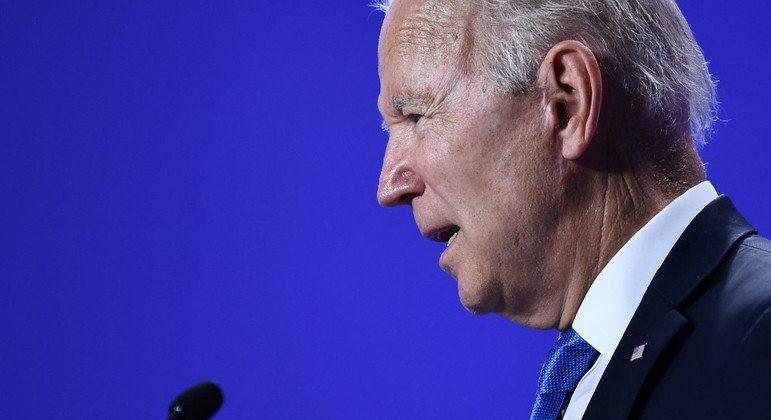Joe Biden accuses China of turning its back on climate action at COP26 – News
3 min read
US President Joe Biden on Tuesday accused China of turning its back on the “giant” climate change problem at COP26, which was marked by a major global promise to produce less methane not including the world’s largest exporter.
On the third day of the United Nations Climate Conference, leaders of one hundred countries, who were invited to participate in the hope that their presence would foster dialogue, decided to cut methane emissions by 30% by the end of this decade.
But that commitment does not include China, Russia and India, three of the five largest emitters on the planet. He mentioned the two first heads of state, Xi Jinping and Vladimir Putin, who had previously avoided the G20 summit in Rome, not even traveling to the Scottish city of Glasgow.
“I think it was a big mistake, frankly, not showing up China,” Biden said at a news conference, accusing the country of “turning its back” on the “giant” problem facing the planet.
methane initiative
Methane has a greenhouse effect 80 times stronger than carbon dioxide. Its sources, such as open-pit coal mines and livestock, have received relatively little attention so far.
“It’s one of the gases we can reduce most quickly,” European Commission President Ursula von der Leyen explained, noting that methane is responsible for “about 30%” of global warming accumulated since the Industrial Revolution.
One hundred countries, led by the United States and the European Union, signed this commitment. Although major meat producers such as Brazil and Argentina are included, these countries account for just over 40% of global methane emissions.
“Today’s announcement does not achieve the 45% reduction, which is necessary, according to the United Nations, to keep global warming below 1.5 degrees,” said Murray Worthy, president of the NGO Global Witness.
Argentina joined the pledge, emphasizing the “principle of common but differentiated responsibilities” between developed countries – responsible for the vast majority of emissions over the past century – and developing countries.
Argentine President Alberto Fernandez defended “the contribution of our agricultural industry to global food security should not be excluded from the climate negotiations so as not to generate new forms of protectionism”.
He called for the repayment of part of its huge foreign debt to be linked to “basic investments in green infrastructure that Argentina needs.”
complex negotiations
canceled last year due to the pandemic, COP26 Its mission is to advance the 2015 Paris Agreement and achieve a major goal of limiting global warming to 1.5 degrees. However, the announced negotiations are complicated.
The British prime minister and conference host, Boris Johnson, warned there was “still a long way to go” and declared he was “prudently optimistic” as leaders begin to leave Glasgow and hand the baton to negotiators.
Seeking reinforcement, heads of state and government promised not only to emit less gas, but also to absorb more, Halt and reverse deforestation and land degradation by 2030.
“Our forests are nature’s way of capturing carbon, and getting carbon dioxide out of the atmosphere,” Biden said. “We have to face this issue [do desmatamento] Just as dangerous as decarbonizing our economies.”
According to the NGO Global Forest Watch, in 2020 alone, primary forest destruction grew by 12% compared to the previous year – despite the economic slowdown due to the pandemic – and Brazil, cradle of the largest tropical forest on the planet, had a 9.5% increase in greenhouse gas emissions. Global Warming.
More than 100 countries that signed up to the initiative represent 85% of the world’s forests.
Measures include supporting activities in developing countries, such as restoring degraded lands, fighting forest fires, and defending the rights of indigenous communities.
It will be supported by a fund of US$12 billion (about R$68 billion) of public money funded by 12 countries between 2021 and 2025, as well as US$7.2 billion (about R$40 billion) of private investment from more than 30 countries. International financial institution.
“It is very important to be carbon neutral, but it is also important to be positive with nature,” Colombian President Ivan Duque said at the event, whose country occupies 52% of the tropical rainforest and 35% of the Amazon and Amazon lands. Declare 30% of its land a protected area in 2022.
Duque predicted the pledge eight years ahead of schedule, “because we have to act now,” he said.
Environmental groups denounced the end of deforestation in 2030 as too late and Greenpeace described it as “the green light for another decade of forest destruction”.

“Devoted food specialist. General alcohol fanatic. Amateur explorer. Infuriatingly humble social media scholar. Analyst.”




